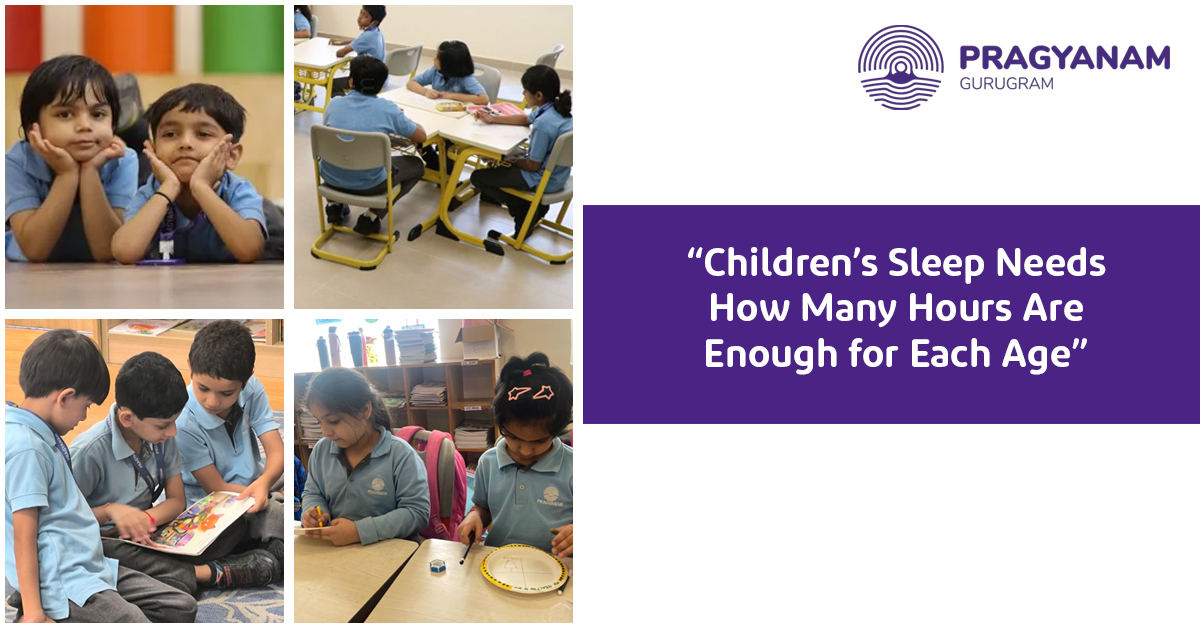Sleep is one of the most important pillars of a child’s health and development, yet it’s often overlooked in our busy modern lifestyles. From Preschoolers to teenagers, each stage of childhood requires different amounts of sleep to support growth, learning, and emotional balance. We will explore the recommended sleep hours by age, why sleep matters, and how parents can ensure their children get the rest they need.
Table of Contents
Why Sleep is Essential for Children
Sleep is not just about rest—it’s when the body and brain recharge. During deep sleep:
• Growth hormones are released, supporting physical development.
• The brain processes and stores memories, aiding learning and creativity.
• The immune system strengthens, protecting against illness.
• Emotional regulation improves, reducing mood swings and irritability.
Children who consistently get enough quality sleep tend to have better attention spans, stronger academic performance, and healthier relationships.

Recommended Sleep Hours by Age
Experts, including the American Academy of Sleep Medicine, recommend the following:
Preschoolers (3–5 years)
• 10–13 hours per day
Some children drop daytime naps, but consistent nighttime sleep is crucial.
School-age Children (6–12 years)
• 9–12 hours per night
A regular sleep schedule helps them stay focused and active in school.
Teenagers (13–18 years)
• 8–10 hours per night
Teens often face academic, social, and screen-time pressures, but sufficient sleep is still vital for their mental and physical health.
Tips for Helping Children Get Better Sleep
1. Set a Consistent Bedtime and Wake-up Time – Helps regulate their internal body clock.
2. Limit Screen Time Before Bed – The blue light from devices can delay sleep onset.
3. Create a Relaxing Bedtime Routine – Reading, soft music, or gentle stretching can help.
4. Keep the Sleep Environment Comfortable – Quiet, cool, and dark rooms promote restful sleep.
5. Encourage Daytime Physical Activity – Exercise improves sleep quality and duration.
Final Thoughts
Educational institutions play a key role in shaping children’s daily routines, including their sleep patterns. By guiding parents and students about the importance of rest, offering flexible timetables where feasible, and ensuring homework loads are manageable, schools can help students maintain healthier lifestyles. At Pragyanam School, we prioritize the overall well-being of every learner, recognizing that quality sleep is just as vital to success as classroom learning.
Frequently Asked Questions (FAQ)
Q1: How can I help my child fall asleep faster?
A: Establish a calming pre-bed routine, avoid heavy snacks before bed, and keep the bedroom free of distractions.
Q2: Should I worry if my teenager sleeps late?
A: Teens naturally have a later sleep cycle, but they should still aim for 8–10 hours of rest daily.
Q3: Do all children need naps?
A: Naps are essential for younger children, but most kids stop napping by the time they enter primary school.
Q4: Can diet affect sleep quality?
A: Yes. A balanced diet supports better sleep, while sugary or caffeinated foods before bedtime can cause restlessness.





